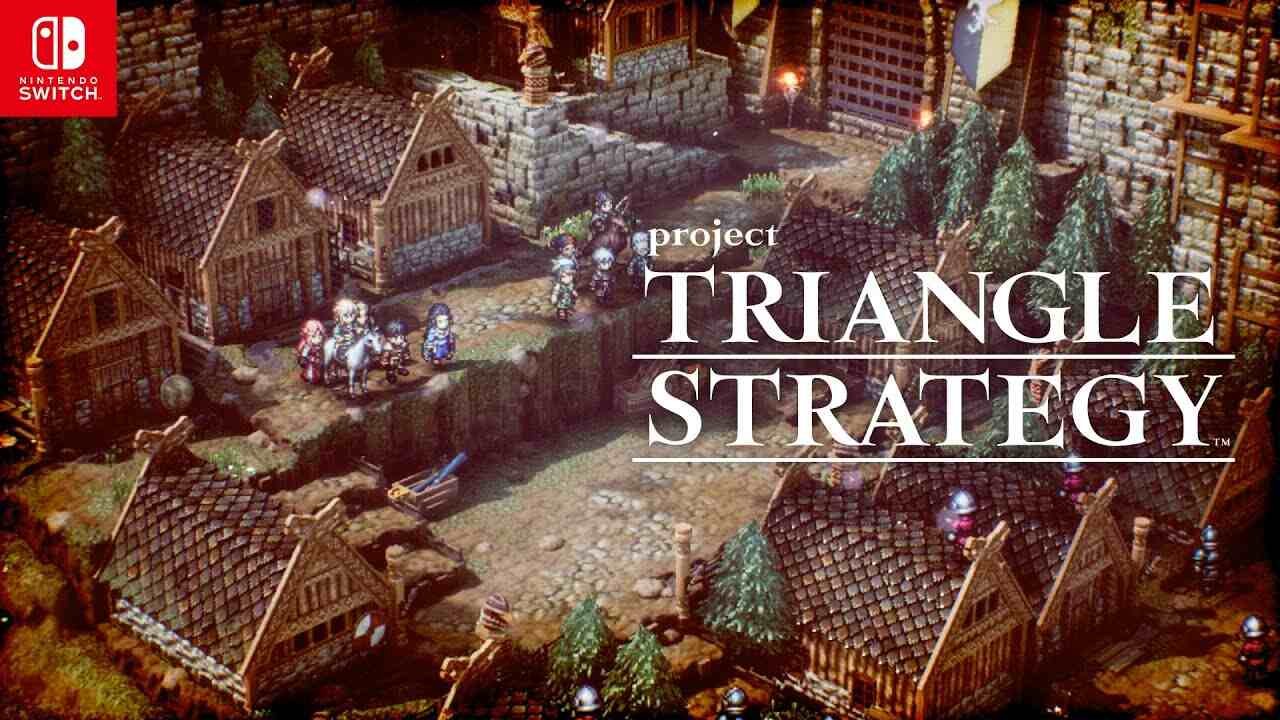

Asano's team should have tipped the balance in favour of action rather than conversation, since it would help to keep the interest and enhance some of the mechanics that take little time to connect with the player. That is the reason why having such a limited number of battles is a pity, even though there is a bunch of optional battles that you can unlock in the Encampment (you can have access to it from the menu where you buy items, raise the class of a character, improve their weapons or their attributes). It challenges something that seemed to be set in stone in the genre, and it succeeds because it gives weight to its surroundings, a strategy that demands the player to study the locations and the enemies in order to achieve victory. Triangle Strategy doesn't let you choose armour or weapons, you just improve the ones you already have or equip accessories to boost certain traits. The fact that the character's degree of equipment is limited is surprising. This "environmental" layer is added to the usual elements in these type of games, typical mechanics such as spells, ranged attacks, hand-to-hand or in-field battles, enhancers, items, attacks from the rear, or even combos when surrounding a character ahead and behind.

The weakness and strengths not only depend on the type of unit and its equipment, but the setting also plays a major role: the grass may be on fire and it may burn enemies or companions, rain may cause puddles that can favour electric shocks, or even ice can cause you to slip and fail an attack. From the beginning, you choose which units will fight and where they will be located, and you must take into account the kind of enemy you face and how the battlefield looks. Even though we are looking at a limited RPG, in terms of exploration, to give importance to freedom of choice, the game does not falter at all in the combat system.Įvery battle demands attention and reflection. This leads us to the most solid feature in Triangle Strategy (alongside a HD-2D style that looks better than ever, and excels even more in the use of light and shadow -with some amazing surroundings and particle effects): its battles. It is true, however, that there are obvious classes such as wizards, supportive, swordsmen, lancers, archers, etc. All the cast is completely different, and you can have a very varied selection of units in your team, with more than 18 exceptional individuals in both the combat style and the nature, and you also recruit them according to the path you build along the game. If there was any doubt, the pace is slow, though the story has some really good moments and very unforgettable characters. The problem is, some of them slow down the progress, and they are only useful to delve into the lore a little bit deeper. Seeing that the map shows an optional event in a place, going there and checking that it appears just to read a few lines between two characters (there are a lot of them) gets tiresome, and the worst part of it is that they may be required to activate a feature in the main event in a chapter of the game (which appears in red). Eventually, they almost end up buried under tons and tons of dialogue. There is a map to take you directly to events, and when it is time to investigate, you move around limited areas that open in a totally linear way over the chapters in which the story is divided. There is no world map in this game to move freely, and there are no towns to find and visit. It is worth noting, however, that they are the only thing that gives you some freedom of movement. Some moments may be especially difficult, and they may put you between a rock and a hard place, even if the plot thickens more than needed when you see that characters that had a certain voting intention end up voting for a different thing. That decision may benefit your people, but sacrifice others, and vice versa. Using it implies a voting, normally between two factions of the opposing characters, in which you must talk them into voting in favour of your interests. Usually, this is reflected in the options of the ( Convictions) that you choose while being Serenoa and speaking with others, even though the main moments come when using The Scales of Conviction.

On top of that, every dialogue is important since they provide key information when it comes to taking decisions, which alter the course of the story. You may have to deal with conversations and scenes for more than half an hour (or almost an hour) between battles. The way all the plot builds up is the major asset in Triangle Strategy, though it sacrifices the pace of the game in exchange.


 0 kommentar(er)
0 kommentar(er)
